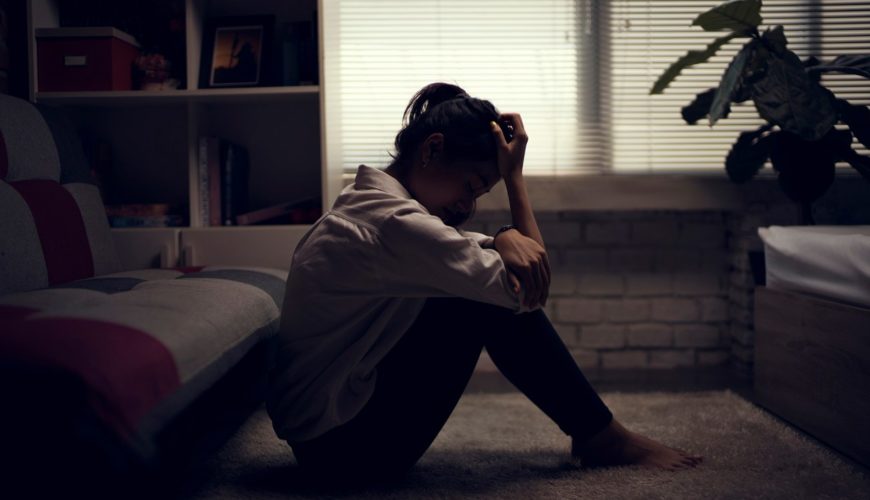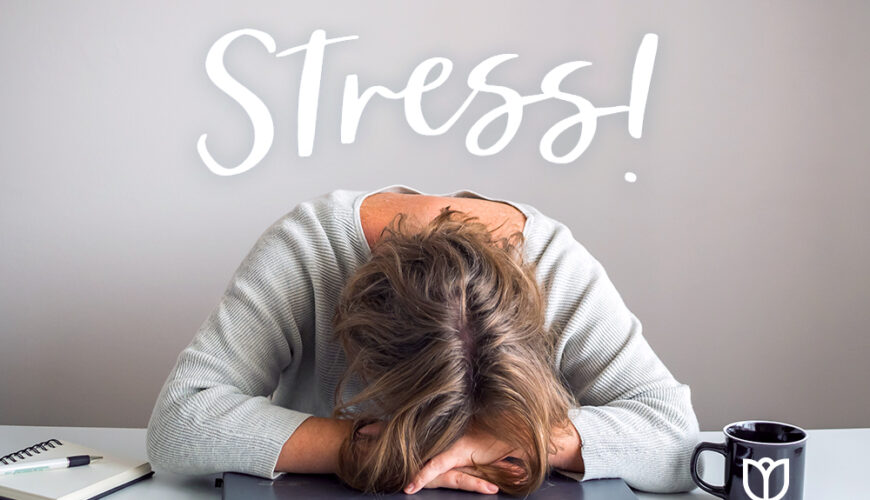Most of us will feel unhappy in our lives from time to time. Situations can occur that make us unhappy, sometimes seriously so. But while depression is a term that is often loosely used to describe how we feel after we have had a bad day or something has happened in our lives that’s caused us to feel sad, being unhappy and depressed are not the same thing.
Major depressive disorder, which is a main type of depression, is often a much more complicated situation. There are certain symptoms involved that determine whether somebody is simply having a hard time and feeling sad and unhappy, or suffering from depression. Determining whether the feelings that you are having right now are a result of suffering from depression can be the first step towards recovering and feeling better once again. Read on to find out more about the common warning signs of depression and to decide if seeing a mental health professional might be the right choice for you.
Feeling Hopeless:
Most of the time when we feel sad, we can still feel hopeful about the future and are sure that even though it’s tough right now, our situation is probably going to improve. However, people with major depression have a mood disorder that affects the way that they feel about life in general. They will often have a helpless or hopeless outlook on life and believe that nothing is ever going to get any better for them.
This is one of the most common symptoms of depression. It may also be accompanied by other feelings such as guilt and shame, feeling worthless, or hating oneself. Many people with depression will have intrusive thoughts about it being all their fault or wondering what the point is.
Many people began to feel this way as a result of the COVID19 pandemic, increasing the demand for mental health services. This led to counselor stress, which was caused by the significant increase in people turning to various mental health services to help them get over these feelings.
Loss of Interest:
Another common symptom of depression is that it can often take all the enjoyment or pleasure out of the things that you once loved doing. Somebody with depression may no longer spend time going to their favorite restaurants or playing a sport that they used to take part in every week because they simply don’t find it enjoyable anymore. Depression can often present itself as withdrawal from or a loss of interest in activities that somebody used to look forward to, and it’s a major tell-tale sign that somebody is dealing with depression rather than simply feeling unhappy about something in their life. Sex is another area where people with depression tend to lose a lot of interest; a significantly decreased sex drive or even impotence is not uncommon for people who are dealing with this mental health condition.
Anxiety:
Although depression has not been shown to be a cause of anxiety, these two conditions often come hand in hand. In some cases, the symptoms of depression can often lead to anxiety developing. People who are dealing with depression might begin to develop anxiety about how other people perceive them or being a burden to others, financial worries due to poor work performance, or even their personal and romantic relationships suffering as a result of their symptoms. Some of the main symptoms of anxiety to look out for including rapid heart rate and breathing, increased sweating, muscle twitching or trembling, feeling tense, nervous, and restless, trouble focusing on anything other than the thing that you are feeling anxious about, and feelings of dread, danger, or panic.

Sleep Problems and Fatigue:
While feeling sad about something can often make you want to crawl back into bed and stay there for the rest of the day, it doesn’t often last for very long. Often, after a few hours or a day of relaxing in bed and watching some comedy to cheer yourself up you might begin to feel better and ready to take on the world again. But with depression, things are different.
One of the main reasons why people with depression might stop doing the things that they once enjoyed is because they feel too tired to do pretty much anything. Depression is often accompanied by an overwhelming feeling of fatigue and an almost complete lack of energy, which can leave people feeling like the life has been drained out of them. This is often one of the most debilitating symptoms of this condition and can often lead to people spending more time sleeping than they normally would. On the other hand, depression is also linked to insomnia, which each condition leading to the other and making each one worse. As a result of not getting enough rest at night, people may also develop the symptoms of anxiety.
Appetite and Weight Changes:
For people with depression, appetite and weight can often fluctuate. This symptom can show up differently for each person. Some people with depression will experience an increased appetite, often turning to comfort foods that help them feel better momentarily. As a result, they may experience weight gain and other health problems. On the other hand, some people with depression will lose their appetite and just don’t feel hungry, causing them to lose weight as a result. One indication of whether or not these dietary and weight changes are linked to depression is whether or not they are intentional. If a person is losing or gaining weight or has made changes to their diet that weren’t planned or intentional, this is a tell-tale sign that depression might be behind it.
Irritability:
Irritability is a symptom of depression that is often more common in men than women, although women with depression may experience it too. Depression can show up differently in both sexes and research suggests that men with depression are more likely to experience symptoms including irritability, risky or escapist behavior, misplaced anger, or substance abuse. Since these symptoms can often be caused by other mental health problems or might even be put down to bad behavior, this is another main reason why depression in men is often more likely to go unrecognized by themselves and others, leading to a reduced likelihood of them seeking out help and support with it.
Thoughts of Death or Suicide:
Depression can lead to suicide. According to the CDC, over 40,000 people in the US died from suicide in 2013. Many people who die by suicide will show some symptoms of depression and suicidal thoughts first. They will talk about suicide, even casually, before they make an attempt or succeed at it.
If you have suicidal thoughts or ideations or are seriously considering ending your own life, there is help available for you. You can call 911 or your local emergency number to get help and support. The National Suicide Prevention Lifeline is always there to offer a listening ear and help you find a reason to stay around.
Uncontrollable Emotions:
Depression is often characterized by feeling numb and helpless, but in some cases, people with depression can often experience uncontrollable and often quickly-changing emotions. One minute you might be feeling especially angry and the next, you cannot stop crying, even if this change in emotion is completely unprompted. Depression is a mental health condition that can often cause severe mood swings, so if your emotions are going up and down with very little notice, it’s a major sign that you might be suffering from this condition.

Ways to Get Help:
If some of the symptoms above resonate with you, there is a chance that you are suffering from depression rather than simply feeling sad or unhappy. If you suspect that you might be dealing with major depressive disorder, there are several things that you can do to get help. You may want to consider:
-
Speaking To Your Doctor:
Your doctor will understand depression and may be able to refer you to specialist treatment such as counseling to help. You may also be prescribed anti-depressant medication such as SSRIs that can help to rebalance the neurotransmitters in your brain such as serotonin and dopamine that are often unbalanced when we suffer from depression.
-
Getting Therapy:
Speaking to a therapist can help you make sense of why you are suffering from depression and what might have caused it. In addition, you can also get a new perspective on life and better coping mechanisms for dealing with and managing your condition. Many people find that therapy and SSRIs in combination work well for overcoming depression by tackling both the symptoms and the root cause.
-
Speaking to Family and Friends:
No matter how much of a burden you feel, remember that your family and friends care about you and will want to support you. Asking for help can be difficult, but it’s often the first step towards recovery.
While depression is often a term used to describe how we feel when we’re down, these symptoms are the difference between feeling unhappy and dealing with major depressive disorder.




